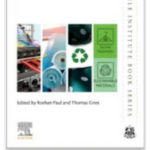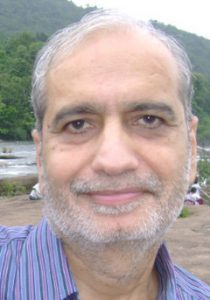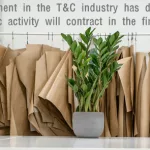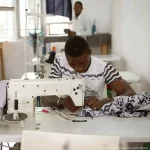The Association of Textile Engineers & Technologists (ATET), a national association for the Textile Engineers and Technologists of Bangladesh, was officially founded in 2012. Recently the new committee has been announced Engr. Md. Aminul Islam becomes the President 2nd time in a row.
ATET has been working for the progress of the Textile Engineers who are the core of the Textile Industry.
Since 2018, the ATET committee led by Engr. Md. Aminul Islam, Managing Director of Dara Technology (BD) Limited.

Engr. Md. Aminul Islam, Managing Director of Dara Technology (BD) Ltd., is a visionary leader. Aminul passed a Diploma in Textile Engineering from Tangail Textile Institute and completed B.Sc. in Textile Engineering from City University.
He has vast working experience in different textile factories and educational institutes.
Recently, Aminul Islam was interviewed by Textile Today team about various issues and ATET’s plans. Some of the key discussion has been published for the readers.
ATET (the Association of Textile Engineers & Technologists) reached its 12th anniversary. How many members you have now? As an old and experienced Association, how is it setting its future goal?
We have almost 10,000 general members. Also, we have around 600 life members. And we hope that within the tenure of this committee it will reach 5000.
Besides, as an organization, ATET will increase its member so that it can serve a big number of textile engineers and technologists. And we are working hard to ensure that.
As for setting its future goal, our main aim is to develop the skills of new textile engineers. As the global industry demands skilled engineers. ATET has a wide array of experienced leaders who can develop the newcomers in a short course. It will make getting jobs easier.
Above all, ATET is trying its utmost to make the textile communities’ life – be it in the job, social, personal – much easier. There is no separate BCS category for textile engineers. But this community and the readymade garment (RMG) industry is tremendously contributing to the economic growth of Bangladesh. This cannot be achieved alone, all the related organizations, leaders need to work together to make it possible.
How ATET helping its’ members to increase their skills and knowledge domain?
There is no alternative other than skilled workers in the RMG industry, as I have pointed earlier. Thousands of foreign experts work in the Bangladesh textile and apparel industry. Annually taking away millions of dollars without paying any tax.
There is no policy regarding foreigners working in the industry either. ATET wants to have the policy to increase local textile engineers’ scope in the industry.
Whole industry has seen many ups and downs during this COVID-19 pandemic. How ATET evaluating this situation and helping the industry to turn-back?
In 2020, we were severely hit by this global COVID-19 pandemic. But much of it has been recovered due to local textile and RMG millers’ resilience.
A lot of apparel owners, workers and engineers have suffered immensely in the first wave of the COVID-19 pandemic. ATET as an organization worked hard to minimize the impact by arranging jobs for a good number of workers and engineers.
As for the overall impact, after observing the recent global fashion scenario, we are hoping for a full recovery.
How local professionals can contribute more to industry development?
It is a very vital question for the Bangladesh textile and apparel industry – for its survival and future sustainability – to develop local professionals. There are more than 80 plus govt. and private textile institutes who are relentlessly working to bring fresh blood.
Our competitor countries are putting serious challenges to us by greatly investing in human capital besides other developments. Meaning we need to be always on our toes in every aspect – be it in providing top-notch education, R&D, process development, increasing efficiency – of this textile and apparel industry to adopt and equip our textile engineers.
For a long, we are feeling the necessity of having our design and development i.e., R&D. in the last few years some notable leading apparel factories have come up to and providing top-notch R&D but the general RMG sector still lacks greatly in this arena. Which is of course a great concern for us.
There is no alternative for us to invest in having our creativity. Rather only investing in bringing new machinery.
How the associations (ATET, ITET, BGMEA, BKMEA) and government can work together at the policy level to make the business more sustainable?
As I said earlier, it is a combined process. Where everybody needs to work as a body to ensure that the Bangladesh RMG industry remains viable globally.
Usually, the jute and textile ministry make all the policies regarding the industry. as an organization, in every meeting, ATET has been expressing its opinion that all the policy the ministry is taking needs to be textile industry, engineers and workers friendly.
Besides, other organizations are working hard to develop this sector. Synchronized co-ordination is a must in this.
The government’s initiative of developing 100 economic zones holds a great aspect for us. Be it in investment, or job creation. We hope that these are developed very quickly.
Not to mention, the media’s role in it is paramount in branding Bangladesh’s textile and apparel industry. especially Textile Today is like the voice of our textile engineers.
(Courtesy: Textile Today)






